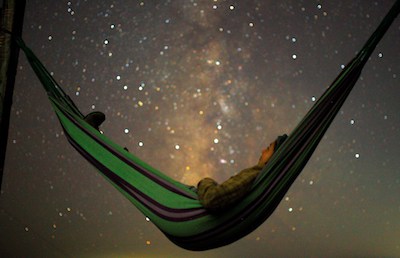- Posts: 15746
- Thank you received: 320
- Forum
- The Highway
- The Health Center
- Why scientists say experiencing awe can help you live your best life
Why scientists say experiencing awe can help you live your best life
- ScienceChic
-
 Topic Author
Topic Author
- Mountain Champion
-

Less
More
11 Mar 2019 22:55 #1
by ScienceChic
"Now, more than ever, the illusions of division threaten our very existence. We all know the truth: more connects us than separates us. But in times of crisis the wise build bridges, while the foolish build barriers. We must find a way to look after one another as if we were one single tribe.” -King T'Challa, Black Panther
The truth is incontrovertible. Malice may attack it. ignorance may deride it, but in the end, there it is. ~Winston Churchill
Why scientists say experiencing awe can help you live your best life
Psychologists say the emotion of awe plays a big role in our health, happiness and wellbeing. And you don't need to witness a supermoon to experience it.
By Sarah DiGiulio
February 19, 2019
Psychologists say the emotion of awe plays a big role in our health, happiness and wellbeing. And you don't need to witness a supermoon to experience it.
By Sarah DiGiulio
February 19, 2019
Maybe you’ve felt it standing on the rim of the Grand Canyon. Maybe it happens when you think about the vastness of space or glance up at the sky and marvel at a supermoon. Or maybe you feel it when you see someone offer up a seat on a crowded train to another individual they've never met.
The emotion is awe. And, psychologists say it can play an important role in bolstering happiness, health and our social interactions — and it may have actually long played a role in how and why humans get along and ultimately cooperate with one another.
“People feeling awe focus more of their attention outward and value others more in social interactions,” Jennifer Stellar, PhD, assistant professor in the Psychology Department at the University of Toronto, tells NBC News BETTER. (Stellar has also studied the effect of awe on the body’s immune system. More on that below.)
"Now, more than ever, the illusions of division threaten our very existence. We all know the truth: more connects us than separates us. But in times of crisis the wise build bridges, while the foolish build barriers. We must find a way to look after one another as if we were one single tribe.” -King T'Challa, Black Panther
The truth is incontrovertible. Malice may attack it. ignorance may deride it, but in the end, there it is. ~Winston Churchill
Please Log in or Create an account to join the conversation.
- homeagain
-

- Mountain Legend
-

Less
More
- Posts: 12782
- Thank you received: 173
12 Mar 2019 12:47 #2
by homeagain
Replied by homeagain on topic Why scientists say experiencing awe can help you live your best life
Having lived in the mountains for over a decade.....the inky black backdrop contrasting with the diamond radiance of the stars, is what I MISS the most....that and the wind whispering thru the pines,as it moves forward towards you. THAT is awe.....and there is a vivid void you experience when you no longer are able to see/feel it's presence.
The following user(s) said Thank You: MyMountainTown
Please Log in or Create an account to join the conversation.
- Forum
- The Highway
- The Health Center
- Why scientists say experiencing awe can help you live your best life
Time to create page: 0.137 seconds








